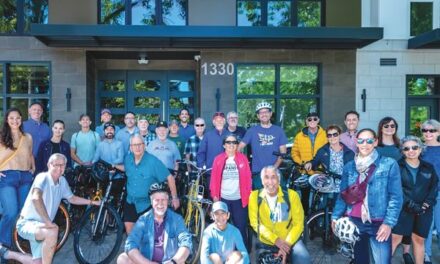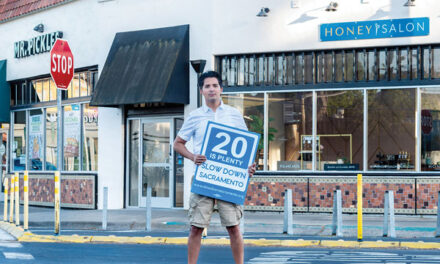Coronavirus news is crowding out everything in our public discourse, so it’s understandable why we’re not hearing much about the protracted stalemate between the Sacramento City Unified School District and the union representing teachers in the financially troubled system.
Negotiations on the union’s long-expired contract presumably started in March, but it’s been radio silence for much of the time since then. Both sides have reverted to their positions of mistrust, finger pointing and putting off hard choices.
But the relative silence from Sacramento’s business community is another story altogether. It’s more than a little disappointing.
Before the COVID-19 pandemic, we were basking in the city’s renaissance. More restaurants and cool gathering spots were opening than we could keep up with. The city’s arts, cultural and sports scenes were thriving. New amenities were coming online.
Sacramento, forever in the shadow of the Bay Area and California’s other large, more self-sufficient metropolitan areas, had arrived. It was carving out its own identity as a midsized city with big ambition.
People were working, shops and restaurants were filled, our cultural infrastructure was resonant. Big plans were finally coming to fruition on the Downtown waterfront and railyards, where a new soccer stadium is planned. As a city, we were riding a big wave that showed few signs of dissipating.

But everything the city wants to accomplish, from recruiting new businesses and attracting young families, could be undermined by the sad state of Sac City Unified.
With rapid turnover among superintendents and financial dysfunction that put the district on the verge of insolvency and a state takeover, Sac City Unified has been separated from the city’s ascendancy.
Which makes the relative silence of local business leaders troubling. Privately, I’ve been told by many members of the business community that no one wants to be seen as critical of the teachers’ union, which has refused to back down from its insistence that the district has not been honest about its financial dealings.
When I reached out to Barry Broome, president and CEO of the Greater Sacramento Economic Council, to ask why business leaders were not beating the drum for a settlement between the union and school district, he said the current state of affairs was too fraught to enter.
“I think there has been inconsistencies in the financial view of the district,” he said in an email. “Difficult to engage when there (is) no real starting point. Too many conflicting stories. We’ve had four superintendents in eight years. Difficult to help with all of the instability.”
I asked the same question of Amanda Blackwood, president and chief executive officer of the Metro Chamber. “We are all hands on deck in regards to supporting our local businesses through all things coronavirus mitigation right now,” she responded via email. “Happy to talk in the future once things have settled down a bit. Understand if deadlines prohibit that and appreciate you reaching out.”
When I emailed her again at the end of April, I never heard back.
Mayor Darrell Steinberg has been one of the few public figures brave enough to wade into the mess. He engineered a new labor agreement between the teachers and the district in 2017, but the contract proved financially unsustainable.
The agreement averted a strike, which would have been devastating with the latest superintendent, Jorge Aguilar, just settling into the job. But it also seemed to make the district’s financial condition harder to fix.
Another Sacramento mayor, the late Joe Serna, went out on a political limb in the mid-1990s when he used his political capital to help elect four new school board members. The public’s confidence in the district improved. Serna understood we couldn’t have a healthy city with unhealthy public schools.
If the state does take control of Sac City Unified because the district can’t manage its finances, optimists believe receivership may be the right medicine. They could be right. But a state takeover would give us another black eye and feed into the narrative that our city schools are a mess.
The COVID-19 pandemic will fade. Sacramento will boom again, though how energetically is anyone’s guess. But the failure of the city’s business leadership to exert influence on one of the most important problems facing Sacramento will be an abdication of responsibility we won’t quickly live down.
Gary Delsohn can be reached at gdelsohn@gmail.com. Follow us on Facebook, Twitter and Instagram: @insidesacramento.
















